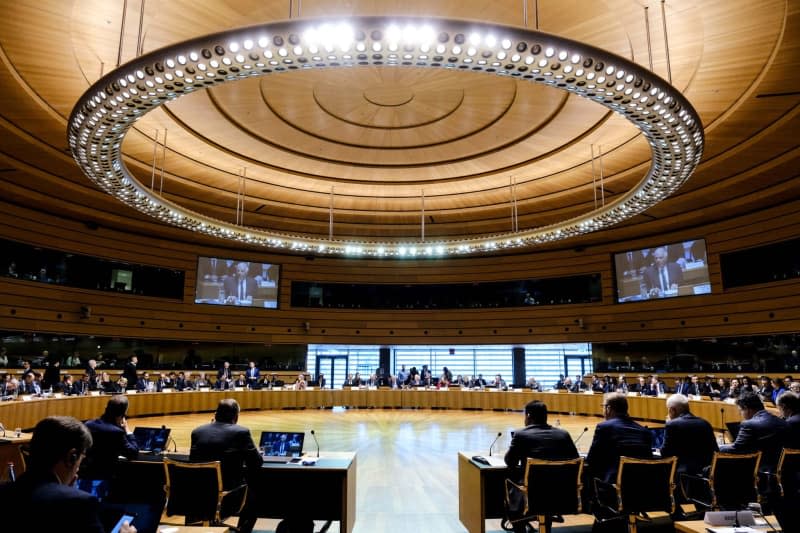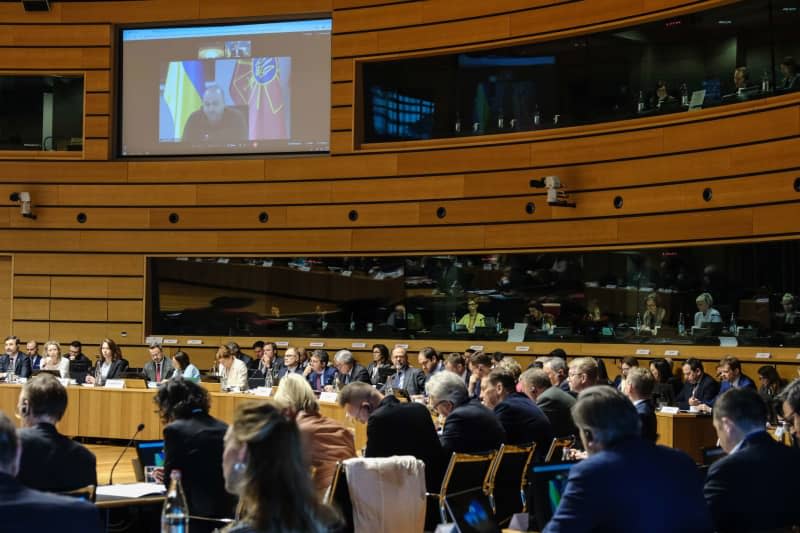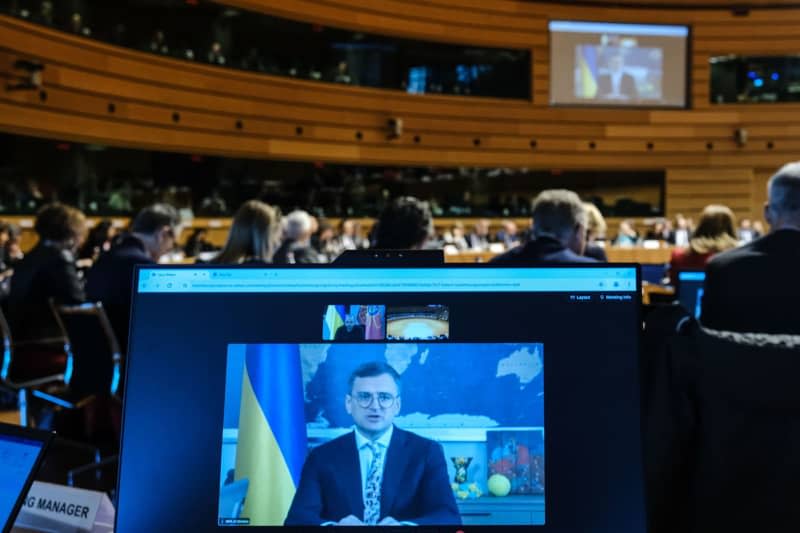EU ministers discuss Ukraine support and Iran sanctions

EU foreign and defence ministers are in Luxembourg on Monday to discuss support for Ukraine - following US lawmakers' approval of a nearly $61 billion aid package - as well as sanctions against Iran for its attack on Israel and its arming of Russia.
Latvia's new foreign minister, Baiba Braže, said it was important that EU countries don't become complacent now that the US has passed its long-delayed aid package.
"We have to step up. It's a crucial time," she said. "If Europe has the ambition to manage conflict on its continent, this is the time to show them."
Ukraine has been pleading with allies to send more ammunition and weaponry, especially air defence systems, with the front-line under heavy Russian military pressure.
"We dodged a historic bullet," said Lithuanian Foreign Minister Gabrielius Landsbergis, referring to the US aid package. "But unfortunately, many more bullets are on the way," he said. "There can be no calming down, no stopping of assistance, and we have to continue to speak how we're going to assist Ukraine further still."
A new package of sanctions on Russia for attacking Ukraine are also to be discussed.
The other main item on the agenda is new punitive measures on Iran for attacking Israel. Iran has helped to arm Russia's war, Landsbergis noted.
The sanctions are linked to a regime set up for targeting supporters of the Russian invasion. Iran has supplied Russia with drones. Monday's sanctions discussion is "mostly about spare parts for drones that are still not under sanction, and ballistic missiles," Landsbergis said.
EU ministers will also discuss listing Iran's Islamic Revolutionary Guard Corps (IRGC) as a terrorist group. Designating the branch of the Iranian armed forces as a terrorist organization is challenging.
The IRGC would first have to be prosecuted by a national authority for terrorist activities under EU law to prompt this sanction.
A recent court ruling in Dusseldorf, Germany, concerning the activities of the IRGC, is being examined by EU officials. This could open the way to a terrorist designation for the IRGC.
"How many fronts does Iran need to open for us to get serious about sanctioning them?" Landsbergis asked, noting the Islamist regime's involvement in Ukraine and its attack on Israel.



